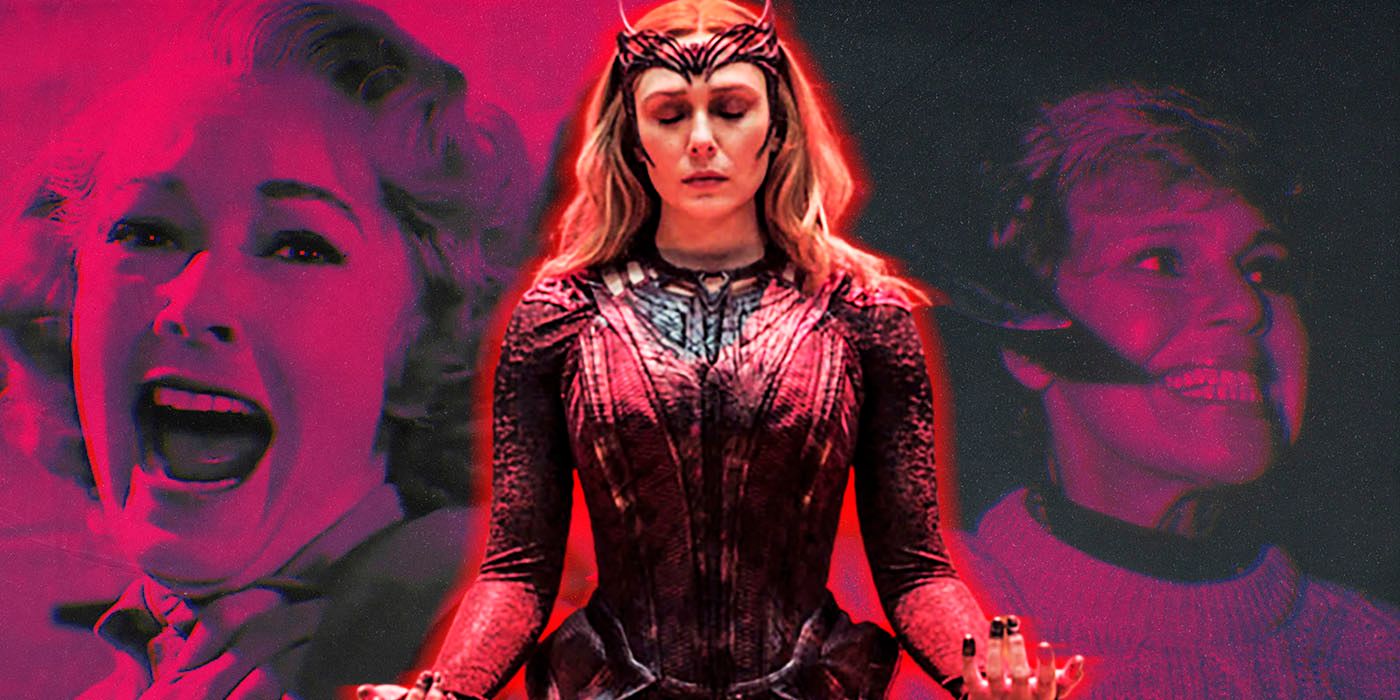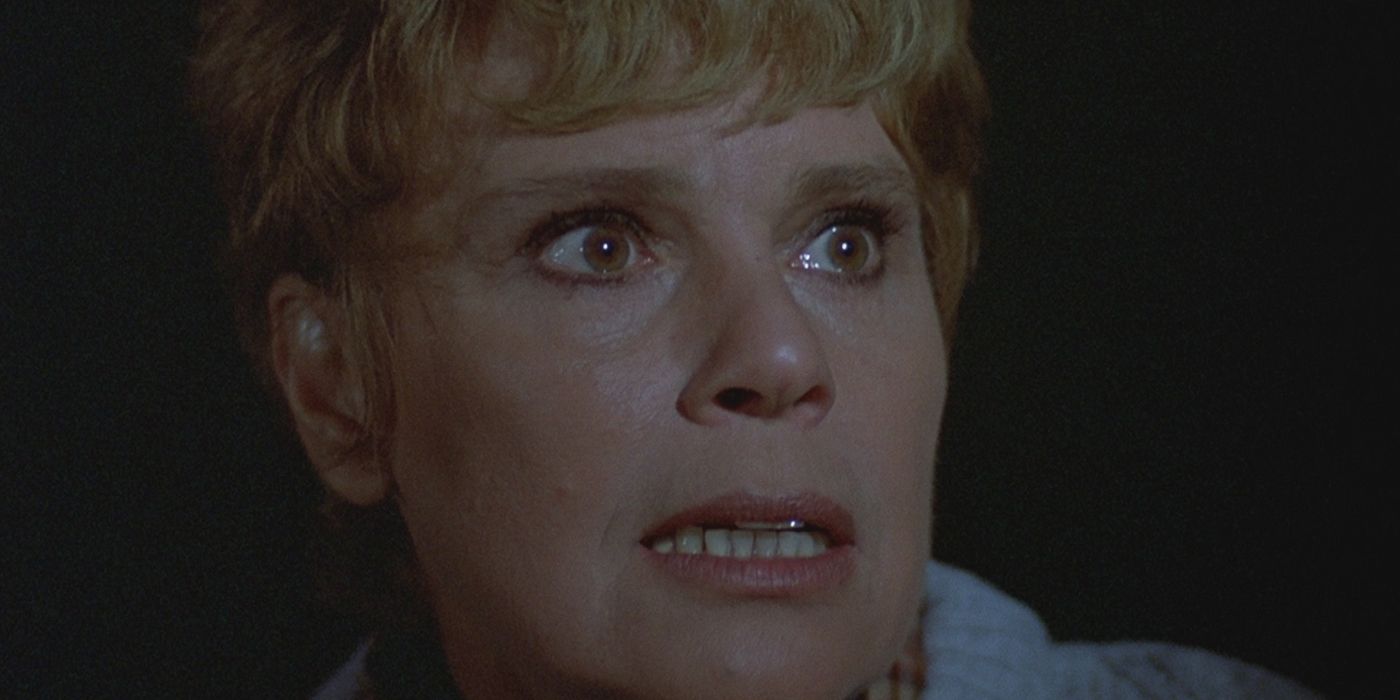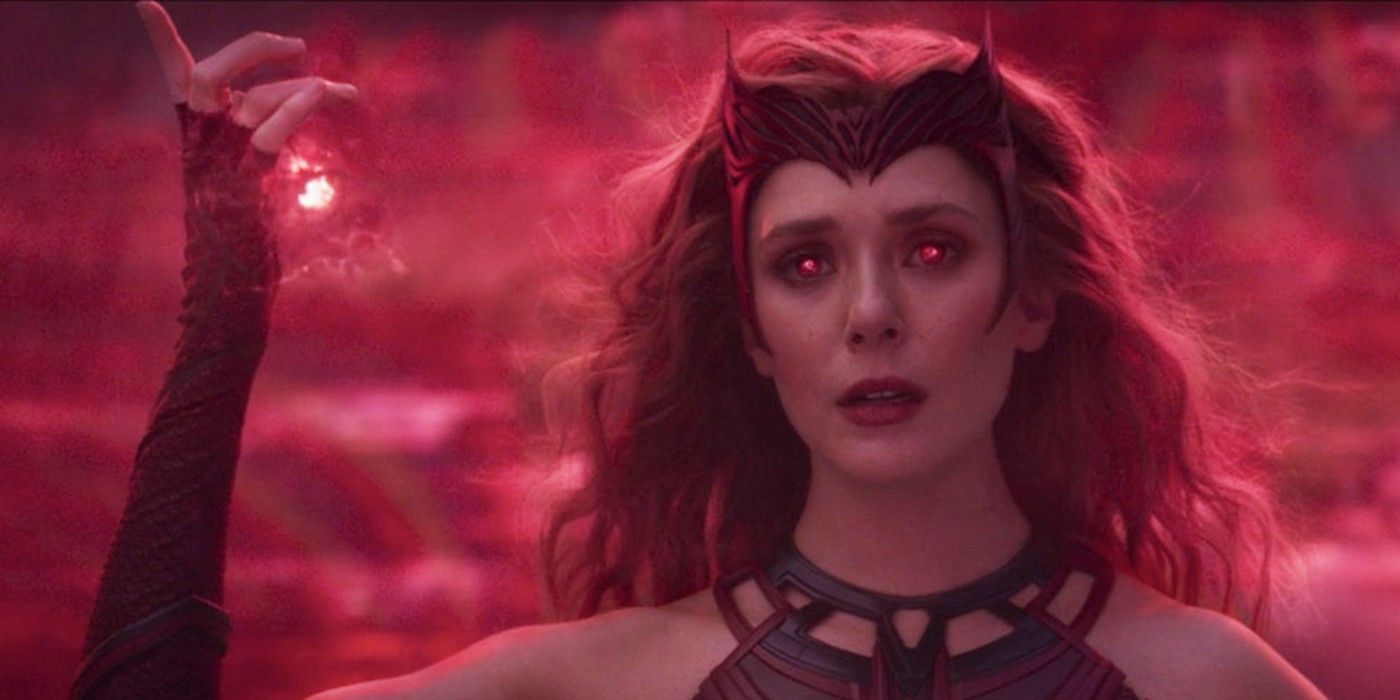While it may be a stretch to call Doctor Strange in the Multiverse of Madness a horror movie, the film certainly draws inspiration from some of the genre's best elements. From zombies to jump scares to a decent kill count, director Sam Raimi delivered one of the creepiest and most gruesome Marvel films to date. However, among these great horror elements, the film also pushed a long-standing trope within the horror genre: the monstrous mother. This trope, memorably seen in full effect with Friday the 13th's Mrs. Voorhees, refers to the representation of mothers as monstrous figures.
Once a woman is seen to have "failed" at basic motherly duties, she is demonized and turned into the villain of a horror film. This is because bad mothers are, according to this trope and the societal expectations behind it, monsters. Such representation is considered negative and misogynistic by many horror scholars, and it is a representation that the Scarlet Witch, Wanda Maximoff, spends most of Multiverse of Madness falling close to portraying.
Psycho Saw the Beginning of the Monstrous Mother
The monstrous mother trope dates back to 1960, with Alfred Hitchcock's Psycho. Though Norma Bates doesn't feature heavily in the film, the effect she has on her son Norman is clear. Though this representation may be justified in the film, given the implied cruel and violent nature of her relationship with Norman, it certainly set a precedent for the way mothers were portrayed in horror. This continued with Mrs. Voorhees in Friday the 13th. Driven by the grief and rage of losing her son, Jason, Mrs. Voorhees enacts revenge on a group of camp counselors. She is the first solid example of a mother in horror being portrayed as a monstrous figure.
The monstrous mother trope centers around the idea that once a mother has "failed" in her duties as a mother, she is demonized and made the villain. Her descent into madness is her punishment. It is what society sees her as, now that she had failed. Wanda Maximoff appears to be living the trope in Multiverse of Madness. She is portrayed as the main villain; she has lost her sons and, in an attempt to get them back, resorts to violence. But does her long history of grief and loss, combined with the fact that she is under the influence of the Darkhold, negate this monstrous representation?
Is the Scarlet Witch a Monstrous Mother?
At the beginning of Multiverse of Madness, Wanda states that it is unfair for her to be villainized for her wrongdoings when so many of her Avenger counterparts are not. This is true, yet the film makes very little effort to rectify Wanda's perceived villain arc until her very last scenes in Multiverse of Madness. For the majority of the film, her storyline follows the monstrous mother trope. Though the audience is encouraged to feel sympathy for her and to understand her plight, she is still punished for her motherly failures, for losing her sons, or perhaps even for creating them in the first place.
The ending of the film sees Wanda finally find her kids, only to scare them off. It's a heartbreaking scene that feels like even more punishment. She doesn't get her kids back. Like the monster the film has told her she is, she doesn't get a happy ending, despite her best efforts. Perhaps if she had, this monstrous arc would have felt in some ways justified, encouraging the audience to find more sympathy for her.
This is not to say that Wanda's villain arc as the Scarlet Witch is not entertaining. It definitely is, with many fans continuing to support Wanda, rooting for her success despite her crimes. Elizabeth Olsen's outstanding performance as the Scarlet Witch in Multiverse of Madness accounted for a big part of the film's intrigue and box office success. But it cannot be denied that the Scarlet Witch, who the audience has seen through great triumphs, deep grief and loss, has now carried this enduring monstrous mother horror trope into 2022.



